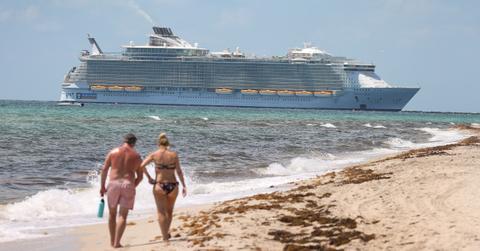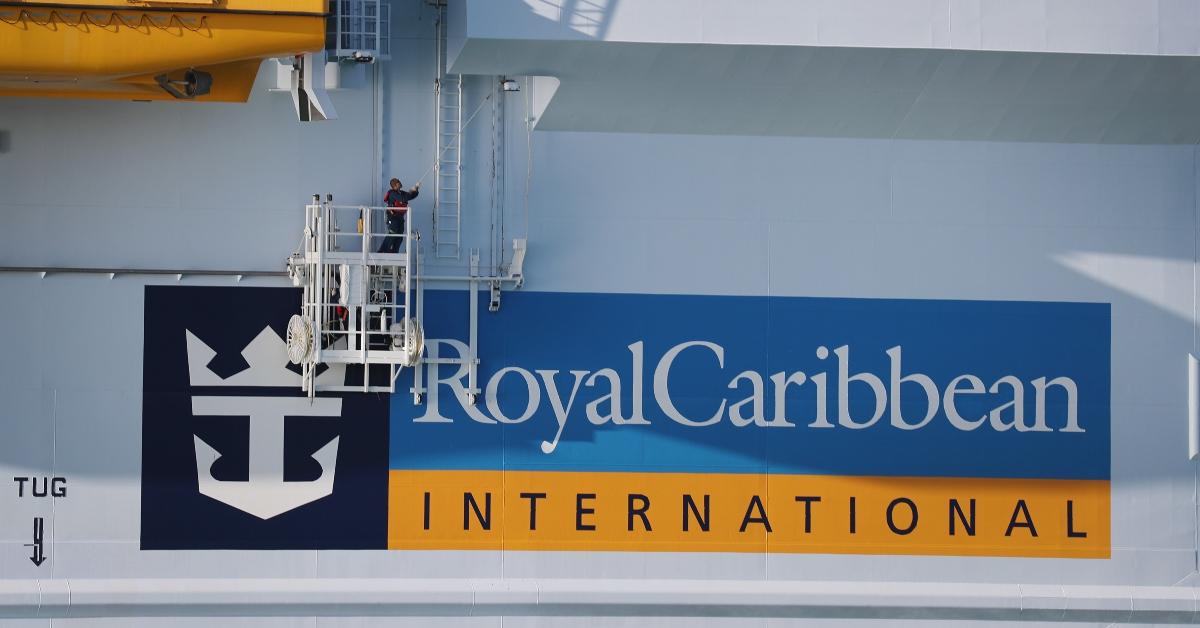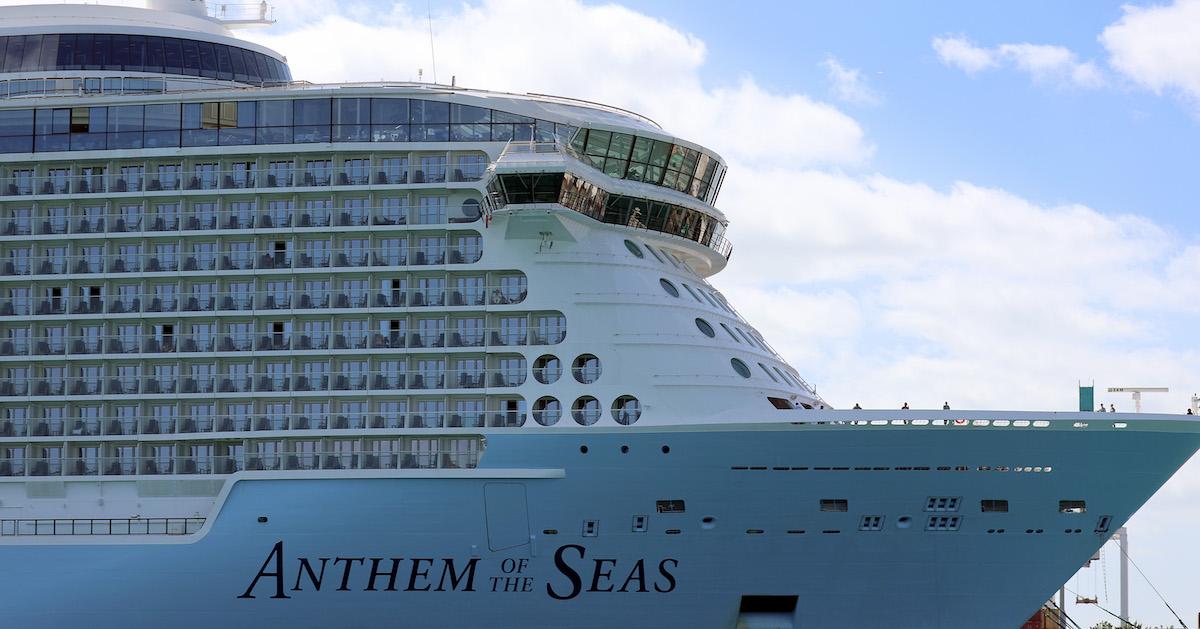Royal Caribbean Is Making the World's Biggest Cruise Ship... With the World's Biggest Emissions
Updated June 30 2023, 3:45 p.m. ET

Cruise ships may provide a fun way to vacation, but they have a horrible impact on our environment. According to Friends of the Earth, cruise ships harm everything in their path when they dump toxic waste into the water, fill the air with carbon emissions, and kill marine wildlife.
Royal Caribbean has long been one of the worst offenders — and the cruise line has no plans to stop anytime soon. In June 2023, the Icon of the Seas, the world’s largest cruise ship, embarked on its maiden voyage, and the company announced that the Icon of the Seas will officially debut publicly in early 2024.
Keep reading to learn more about the massive ship, and how Royal Caribbean's cruise ships impact the planet.

Royal Caribbean's Icon of the Seas: How the world's biggest cruise ship compares to other ships.
The massive Icon of the Seas cruise ship measures about 1,200 feet in length. For comparison, that is significantly longer than the infamous RMS Titanic, which was 882.75 feet long.
And in comparing Icon of the Seas to Wonder of the Seas (also by Royal Caribbean), which has been the largest cruise ship in the world since 2022, Icon of the Seas is just a tad larger. The newer ship is 6 percent bigger overall, and about 12 feet longer, since Wonder of the Seas measures about 1,188 in length.
Icon of the Seas' deck plan includes 20 decks.
The Icon of the Seas weighs around 250,800 tonnes, and will carry 5,610 passengers and 2,350 crew members, CNN reports. It will also feature 20 decks.
Throughout these decks, Icon of the Seas will also feature an on-board waterpark (the world's largest at-sea waterpark), the cruise industry's first open freefall waterslide, nine whirlpools, eight neighborhoods, seven pools, a music hall, an arcade, and a dueling piano bar.
You can find Icon of the Seas' full deck plan on Royal Caribbean's website.

The Anthem of the Seas cruise ship, owned by Royal Caribbean, is moored at PortMiami on Feb. 7, 2023.
Royal Caribbean claims the Icon of the Seas will be eco-friendly.
With more and more people becoming aware of just how intrinsically environmentally-unfriendly the cruise ship industry is, it's no surprise that Royal Caribbean is claiming that the Icon of the Seas will be its most sustainable cruise ship. Hmm, something smells fishy... is that the stench of sewage that cruise ships are known for, or is it just greenwashing?
The latter is more likely. Royal Caribbean is touting a number of so-called sustainable features on Icon of the Seas, including:
- Using liquefied natural gas (LNG) for fuel.
- Using a hybrid fuel cell to generate power without producing pollutants.
- The capability to plug into the local power grid of a destination (but only if the setup is available), replacing the need to use fuel every time the ship docks.
- Reducing food waste via an on-board waste-to-energy plant.
- Being land-fill free (but only where ports allow).
The cruise ship industry is inherently bad for the planet.
Royal Caribbean came in at No. 2 on Friends of the Earth's list of polluters in the cruise industry, published in 2022 — that is, "when it comes to the criminal fines" Royal Caribbean has been forced to pay.
According to Friends of the Earth, after Royal Caribbean dumped hazardous chemicals and waste oil in coastal waters, the cruise company was ordered to pay $18 million in fines in 1999. These fines were to cover up a whopping 21 federal felonies in relation to the dumping, as well as alleged lies that Royal Caribbean told the federal government to hide its wrongdoings.
Royal Caribbean also boasts the ecological benefits of "scrubbers" on most of its ships. Scrubbers are devices that "dissolve chemicals from ships’ exhaust into seawater, allowing them to burn cheaper, dirtier fuels," as per Alaska Public Media.
According to the news outlet, many critics believe that these scrubbers are just polluting the ocean. "Scrubbers convert air pollution into water pollution because the toxic byproducts from the scrubber systems are discharged into the seas," Friends of the Earth explained.
In 2021, Royal Caribbean announced its “Destination Net Zero” mission. However, most components of this mission are goals set for decades in the future, such as Royal Caribbean's goal to produce a ship with net-zero emissions by 2035, and to achieve net-zero emissions by 2050. In the battle against the climate crisis, we simply don't have decades to waste.
Additional reporting by Danielle Letenyei.